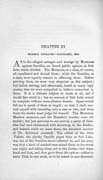
[p. 182]
CHAPTER XI. MORMON OUTRAGES—POLYGAMY, ETC.
AS to the alleged outrages and wrongs by Mormons
against Gentiles, we found public opinion at Salt Lake much divided. The Mormons, as a class, of course,
all repudiated and denied them; while the Gentiles, as
a class, were equally earnest in affirming them. Before
arriving there, we were very skeptical on this subject;
but before leaving, and afterwards, heard so many ugly
stories, that we were compelled to believe somewhat in
them. It is a delicate subject to touch at all, and I
would fain avoid it; but no account of Salt Lake would
be complete without some allusion thereto. Space would
fail me to speak of them at length; so that I shall
content myself with recording only a case or two, and from
them the reader must judge for himself. The Mountain
Meadow massacre, and the Brassfield murder, were old
stories; but just previous to our arrival, a party of
Gentiles had been threatened with drowning in the Jordan,
and indeed, while we were there, the atrocious murder
of Dr. Robinson occurred. The editor of the little
Vidette, the plucky Gentile paper then at Salt Lake,
was one of the Gentiles above referred to, and his story
was that a band of masked men seized them on the street
one night, and taking them out to the Jordan tied them
hand and foot, and then gave them the option—either to
leave Utah in one week, or to be tossed in and drowned.
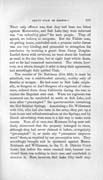
[p. 183]
Their only offence was, that they had been too bitter
against Mormonism, and Salt Lake they were informed
was "an unhealthy place" for such people. They all
agreed, we believe, to emigrate. But the Vidette man,
on getting home, concluded such a promise under duress
was not very binding, and proceeded to strengthen his
conclusion by securing a guard from Camp Douglas.
Loaded down with revolvers, he went about his business
as usual in the day time, but at night kept within doors,
and so far had remained unmolested. The others,
however, as a whole, thought it safer to keep their agreement,
and accordingly duly quitted Utah.
The murder of Dr. Robinson (Oct. 22d), it must be admitted, was a cold-blooded atrocity, worthy only of
fanatics or savages. He had come to Salt Lake originally, as Surgeon or Ass't-Surgeon of a regiment of
volunteers, ordered there from California during the war, to replace the Regulars sent east. When his regiment was
mustered out, he concluded to settle at Salt Lake, and soon after "pre-empted" the quarter-section containing
the Hot Sulphur Springs. Associating a Dr. Williamson
with him, who had also been in the army, they put up a
bath-house and refreshment-saloon at the Springs, and by
liberal advertising were soon in a fair way to make some
money. Now, all at once,two Mormons living near
suddenly discovered that the property belonged to them,
although they had never claimed it before, or regularly
"pre-empted" it, or made any "permanent improvement"
there, as required by our pre-emption laws. They
accordingly brought suit in ejectment against Messrs.
Robinson and Williamson, in the U. S. District Court
there; but before the cause reached trial, became
convinced there was nothing in their case, and concluded to
abandon it. Now, however, Salt Lake City itself
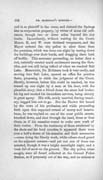
[p. 184]
stepped in as plaintiff in the cause, and claimed the Springs
also as corporation property, by virtue of some old
ordinance, though two or three miles beyond the city
limits. Immediately, without waiting for the Court,
Messrs. R. and W. were declared trespassers, and the
Mayor ordered the city police to eject them from
the premises, which was done one night by tearing down
the buildings over their heads, and dragging them both
off bodily. This summary proceeding, no better than a
riot, naturally created much excitement among the
Gentiles, and was still being talked of when we reached Salt Lake. Meanwhile, Dr. Robinson took it very coolly, and
moving into Salt Lake, opened an office for practice there, proposing to abide the judgment of the Court.
Shortly, however, before this could be reached, he was
roused up one night by a man at his door, with the
plausible story, that a friend down the street had broken
his leg and needed his immediate services, being already
in great agony. His wife, newly married, fearing
treachery, begged him not to go. But the Doctor felt bound
by the vows of his profession, and while proceeding
forth upon this supposed errand of mercy and
benevolence, he was waylaid on one of the most public streets,
knocked down, and shot through the head, three or four
times, as if his assassins meant to make sure work of
their victim. From the testimony of those awakened by
the shots and his loud outcries, it appeared there were
over a half a dozen of his assassins and their accessories
—some doing the bloody work, while others stood guard
on the adjacent corners—and yet not one of them was
arrested, though it was a bright moonlight night, and a
fresh fall of snow on the ground. The city police, when
sought, were all found collected at the Central Police
Station, as if purposely out of the way, and no serious or
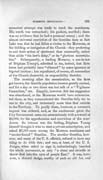
[p. 185]
concerted attempt was made to track the murderers.
His watch was untouched; his pockets, unrifled; there
was no evidence that he had a personal enemy; and the
almost universal conviction of the Gentiles then at Salt
Lake was, that he had fallen a victim to the Mormons, at
the bidding or instigation of the Church—they preferring
to end their action of ejectment thus summarily, rather
than abide "the law's delay," or its "glorious
uncertainties." Subsequently, a leading Mormon, a son-in-law
of Brigham Young's, admitted to me, indeed, that
Robinson had probably been "silenced" by some ignorant or bigoted brother; but repudiated, of course, all connection
of the Church therewith, or responsibility therefor.
The morning after the assassination, as the facts
got known, the Gentile population became greatly excited,
and for a day or two there was hot talk of a "Vigilance
Committee," etc. Happily, however, this last suggestion
was abandoned, or the Mormons would have
exterminated them, as they outnumbered the Gentiles fully six to
one in the city, and immensely more than that outside
in the Territory. To pacify them, however, a coroner's
inquest was ordered, and, as the excitement grew, the
City Government came out ostentatiously with a reward of
$2,000, for the apprehension and conviction of the
murderers. So intense was the feeling, Brigham Young
himself thought it wise to start a private subscription, and
raised $7,000 more among the Mormon merchants and
"tender-footed" Gentiles. The sturdier Gentiles,
however, and many of the U. S. officials, refused to have any
thing to do with this; and one, at least, of the U. S.
Judges, when asked to sign it, unhesitatingly branded
the whole movement, as only "a cheat and swindle to
throw dust into the eyes of people East." It was,
however, a shrewd dodge, worthy of such an old fox, and
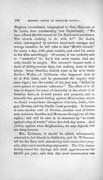
[p. 186]
Brigham inimediately telegraphed to Gen. Sherman, at
St. Louis, then commanding that Department, "We
have offered $9,000 reward for Dr. Robinson's murderers.
The church nothing to do with it!" No doubt,
when interrogated by tourists about such outrages and
wrongs hereafter, he will refer to that "9,000 reward,"
for many a day, with great unction, and extol his saints
to the skies accordingly. Of course, it was perfectly safe
to "subscribe" it; for it was never meant, that any
body should be caught. The coroner's inquest made a
show of sitting several days, but nothing came of their
labors. Some Gentiles, indeed, went so far as to retain
Ex-Gov. Weller, of California, who happened then to be at Salt Lake, and he prosecuted the inquiry with
some vigor; but the verdict of the jury was, "Killed by
some person or persons unknown." The effect of it all
was, to deepen the sense of insecurity in the minds of all
Gentiles there, as to both person and property, and to
intensify the general feeling against Mormonism, which
we found everywhere throughout Colorado, Idaho, Oregon, Nevada, and the Pacific Coast generally. It became at once another wall of division, another root of
bitterness, between Gentiles and Mormons throughout all that
region; and will be sure to be treasured up "as wrath
against a day of wrath," when that dark day comes. And
justice, against even Brighamdom, we may depend, will
not sleep forever.
Mrs. Robinson, it should be added, subsequently returned to her friends in California, and Dr. Williamson
left for the East, both abandoning their undoubted
property, after such convincing arguments. The City
immediately leased the Springs and their appurtenances for
$2,000 per year; and thus this cruel assassination was
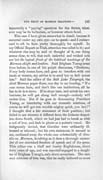
[p. 187]
apparently a "paying" operation for the Saints,
whatever may be its barbarism, or however others fared.
This case I have given somewhat in detail, because it
occurred under my own eye—so to speak—and I
endeavored to sift its facts pretty thoroughly for myself. In
my Official Report on Utah, attention was called to it; and
whatever else may be said or thought of it, one thing
seems clear, to wit, that such unlawful and wicked acts
are but the logical fruit of the habitual teachings of the Mormon chiefs and leaders. Said Brigham Young some time before, in one of his pulpit discourses, "Brethren, if any body comes here, and goes to interfere with our lands or women, my advice is to send 'em to hell across
lots." Said the editor of the Salt Lake Telegraph, the chief Mormon paper there, one day in my hearing, "If a man comes here, and don't like our institutions, all he
has to do is to leave. If he stops here, and minds his own
business, he will get along well enough—nobody will
molest him. But if he goes to denouncing President
Young, or interfering with our domestic relations, of course he will get into trouble mighty quick, you bet!" I thought that a fair statement of their position; but
failed to see wherein it differed from the hideous
despotism down South, which we had just had to break as with
a rod of iron, and dash in pieces as a potter's vessel. He
indignantly denied, that Gentiles were ordinarily ill-
treated or tabooed; but his own statement, it seemed to
me, confessed away the whole case substantially of
Gentile vs. Mormon, involving as it does a thorough surrender of our cherished freedom of speech and of the press.
This editor was a bluff and hearty Englishman, about
forty years of age, and was reported engaged to a
daughter of Brigham Young's, only about seventeen. The current criticism of him was, that he really believed no more
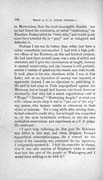
[p. 188]
in Mormonism, than the most incorrigible Gentile but
he had found the institution, or rather "destitution," (as
Theodore Parker called its "twin relic," and would much
more have branded it), to "pay," and so eulogized and
defended it.
Perhaps I can not do better, than relate just here a rather remarkable conversation I had with a high judicial officer of the Territory, on this and kindred subjects. He had been there several years, was a man of ability and character, and I give the conversation at length, because it seemed trustworthy, and also because it will probably answer a variety of questions the reader may want to ask. It took place in his own chambers, while I was at Salt Lake; and as no injunction of secrecy was imposed, or apparently desired, I see no objections to publishing it. He said he had come to Utah unprejudiced against the Mormons, but at length had become convinced, however reluctantly, that they had a secret organization—call it "Thugs," "Danites," "Destroying Angels," or what you will—whose sworn duty it was to "put out of the way" any person, who became hostile or obnoxious to their views or interests. For a long while after coming there, he had refused to credit this; but at length was compelled to, by the most indubitable evidence, to wit, his own multiplied observations and experiences as a U. S. judge. He continued:
"I can't help believing, sir that poor Dr. Robinson was killed in this way, and when Brigham Young's hypocritical subscription-paper, for a reward for the arrest of the assassins, was presented for my signature, I indignantly spurned it. I told the committe in charge, that it was only another of Brigham's tricks to throw dust into the eyes of the people at Washington, and I would have nothing to do with it."
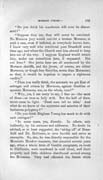
[p. 189]
"Do you think his murderers will ever be discovered?"
"Suppose they are, they will never be convicted. No Mormon jury would convict a brother Mormon, in such a case, even if indicted, as everybody knows here. I know very well who murdered poor Brassheld some time ago, and where the Church sent him abroad to keep him out of the way. I suppose England would return him, under our extradition laws, if requested. But cui bono? Our juries here are all summoned by the Mormon sheriffs, and the jurors, of course, are either Mormons, or dough-face Gentiles, worse than Mormons; so that, it would be hopeless to expect a righteous verdict."
"Then you really think, the accounts we get East of outrages and crimes by Mormons, against Gentiles or apostate Mormons, are, on the whole, true?"
"Why, yes, I am sorry to say, I fear so—the most of them—as true as holy writ. But the half of them never come to light. ‘Dead men tell no tales.' And what do we know of the mysteries and miseries of their barbarous polygamy?"
"Do you think Brigham Young has much to do with such outrages?"
"In some cases, yes, directly. In others, only indirectly, by his sermons and addresses. No doubt he
advised, or at least suggested, the taking off of
Brassfield and Dr. Robinson, to save trouble and serve as examples. So, also, he was directly responsible for the
Mountain Meadow massacre, that occurred several years ago, when a whole train of Gentile emigrants, en route
to California, were murdered in cold blood, and their
property and little children distributed around among
the Mormons. They had offended the Saints while
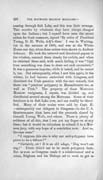
[p. 190]
passing through Salt Lake, and this was their revenge.
This murder by wholesale they have always charged
upon the Indians; but I myself have seen the secret
orders for their massacre, signed 'By order of President
Young, D. H. Wells, Adj't.-Gen.' I was in Washington in the autumn of 1865, and was at the White-
House one day, when these orders were shown to Andrew
Johnson. He took the tattered and discolored papers to
the window, scanned them closely for awhile, and when
he returned them said, with much feeling, it was "high
time something was done to clean out such scoundrels."
It was a generous impulse, while it lasted, and he meant
it, too. But subsequently, when I saw him again, in the
winter, he had become embroiled with Congress, and
dismissed the Utah question with the curt remark, that
there was "practical polygamy in Massachusetts too, as
well as Utah." The property of these Mountain
Meadow emigrants, I repeat, was divided up, and
distributed around among the Mormons. Some of their
furniture is in Salt Lake now, and can readily be
identified. Many of their mules were sold by Capt. H.
—subsequently our delegate to Congress—to the U. S.
Quartermaster then here, and the proceeds shared by
himself, Young, Wells, and others. There is plenty of
evidence of all this, that I can put my finger on at any
time; but it would be ridiculous to submit it to a
Mormon jury, with any hope of a conviction now. And so,
the case rests."
"I suppose, this also is why our anti-polygamy laws prove to be a failure?"
"Certainly, sir! It is an old adage, ‘Dog won't eat dog!' There didn't use to be much polygamy here. I
But as soon as Congress made it a misdemeanor and a
crime, Brigham and his Bishops set to work to get as
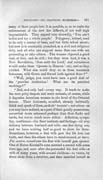
[p. 191]
many of their people into it as possible, so as to make the
enforcement of the new law difficult, if not well nigh
impracticable. They argued very shrewdly, ‘You can't
indict and try a whole people. Polygamy, indeed, used
to be only a matter of taste, and but little talked about;
but now it is constantly preached, as a civil and religious
duty, and all who can support more than one wife are
proceeding to take others. The women objected a good
deal, at first, and do still; but they were told, it was a
New Revelation, ‘thus saith the Lord,' and submission
would make them ‘Queens in Heaven' etc., and so they
yielded. What else could they do in these mountain
fastnesses, with Gown and Sword both against them?"
"Well, judge, you must have seen a good deal of the 'peculiar institution.' What are its practical workings?"
"Bad, and only bad—every way. It tends to make
the men petty despots and mere animals, of course, while
it degrades American women to the level of the Oriental
harem. Their husbands, so-called, already habitually
think and speak of them, as their 'women'—not wives—as
you may have noticed, as a part of their goodly possessions,
somewhat more esteemed perhaps than their flocks and
herds, but not so much more either. Affection,
sympathy, confidence—the finer instincts and feelings—all true
delicacy between husband and wife—are fast dying out,
and we have nothing half so good to show for them.
Sometimes, however, a first wife gets the bit into her
teeth, and then the others have to stand around, or leave.
Per contra, sometimes the first wife herself gets ejected.
One of Heber Kimball's sons married a second wife some
time ago, and soon after she persuaded his first wife—a
wife of many years, with several children—to vacate, by
three shots from a revolver, and then installed herself as
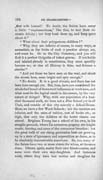
[p. 192]
first wife instead! No doubt, the Saints have many
a little "unpleasantness," like this, to mar their
domestic felicity; but they hush them up, and keep quiet
about it."
"What about their polygamous children?"
"Why, they are inferior of course, in many ways, ex necessitate, as the fruits of such a practice always are, and must be. Go to the City Cemetery, and you will und it a perfect Golgotha of infant graves. If not feeble and tainted already in constitution, they must speedily become so; or else all History is false, and Science a slander."
"And yet those we have seen on the road, and about the streets here, seem bright and spry enough."
"No doubt. It is a good climate, and there has not
been time enough yet. But, then, have you considered the
whole foul brood of downward influences at work here, and
what must be the logical result in due season, by the very
nature of things? Why, with our population of a
hundred thousand souls, we have not a Free School yet in all
Utah, and outside of this city scarcely a School-House.
Here,we have a few Ward Schools; but the teachers are
inferior, and the rates of tuition, cost of books etc., so
high, that only the children of the better classes can
attend. Brigham Young has a school of his own, in his
seraglio grounds, where his numerous progeny are taught
music, dancing, and some of the commoner branches; but
the great bulk of our rising generation here are growing
up in a state of ignorance and superstition so dense, as to
be absolutely inconceivable elsewhere. So, too, many of
the Saints have two or more sisters for wives, at the same
time. Others, again, marry their own blood-cousins, and
some even their own step-daughters. And instances
exist, where they have had mother and daughter for
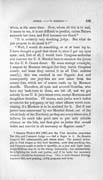
[p. 193]
wives, at the same time. Now, where all this is to end,
it seems to me, it is not difficult to predict, unless Nature
suspends her laws, and Evil becomes our Good."
"It is certainly very shocking, judge. But what do you propose to do about it?"
"Well, I would do something, or at at least try to. I have thought a good deal about it, since I got my eyes open; and, first of all, I would have Congress authorize and instruct the U. S. Marshal here to summon the jurors for the U. S. Courts direct. By some strange oversight, I suspect by Mormon intrigue (for they watch Congress closely, and boast they control it on all Utah matters usually), this was omitted in our Organic Act, and consequently our jury-lists are now taken from the county-lists, which are of course made up by Mormon sheriffs. Therefore, all open and avowed Gentiles, who have any back-bone in them, are left off, and we get nobody in our U. S. jury-boxes even, except Mormons and doughface Gentiles. Of course, such juries won't indict or convict for polygamy, or any other offence worth mentioning, if a Mormon is to be mulcted for it. But if our jurors were summoned by our Marshal direct, out of the whole body of the Territory, as they are everywhere else, I believe, he could take good care to put only reliable citizens on the lists, and thus give us juries that would indict and convict in all necessary or flagrant cases.*
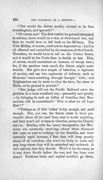
[p. 194]
"But would the Saints meekly consent to be thus overslaughed, and ignored?"
"Of course, not! The first verdict we got and attempted to enforce, there would be a riot, or threatened riot, and then we would have to fall back on the Military. The Utah Militia, of course, could not be depended on; for it is all officered and controlled by the creatures of the Church. Therefore, we would have to call on the United States, and it would be for Uncle Sam to decide at last. This, of course, would necessitate an increase of troops here; for, if the garrison were small, the Saints might make trouble. But give us a couple of batteries, a regiment of cavalry, and say two regiments of infantry, such as Sherman ‘went marching through Georgia' with; and Brighamdom can be made to obey the laws, the same as Dixie, or be ground to powder."
"But, judge, will not the Pacific Railroad solve the problem in a more excellent way—peaceably and quietly —by bringing in such an influx of Gentiles, that Mormonism will be neutralized? This is what we all hope East?"
"Perhaps so, if this ‘influx' is big enough, and good
enough. But, you see, the Saints claim to have pre-
empted about all the land here, that is worth anything,
and they won't sell or lease to Gentiles, unless the Church
says so. Besides, with the heavy immigration the
Mormons are constantly receiving—about three thousand
this year, to next to nothing by the Gentiles, and their
naturally rapid increase, I fear they will keep greatly
ahead of all outsiders, who won't be likely to come and
stay long where they will be ostracised and outlawed. It
isn't natural, that they should. Won't it be the same, as
it was down South before the war, and has been ever
since? Northern brain and capital wouldn't go there,
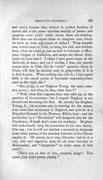
[p. 195]
and won't, because they believe in perfect freedom of
speech and of the press—absolute security of person and
property—and won't settle where these are wanting.
How then can we expect them to emigrate here, where
we have no true enjoyment of either? What sensible
man would come to Utah, or bring his wife and children
here, when he could go just as well to Colorado or
Montana, Oregon or California, and escape the dismal
drawbacks we have here? I admit I have great hopes of the `
Railroad, in time; and yet I confess, I fear, our quӕstio
vexata here in Utah, like its "twin" question down in
Dixie, will find its solution only in gunpowder, if it is
to find it soon. When nothing else will do, I have great
faith in the moral power of bayonets—especially, when
used on the right side."
"But, judge, is not Brigham Young the main cohesive power; and when he dies, what then?"
"Well, when that happens they may split up, on the question of his successor; but I suspect Brigham is too shrewd and far-seeing for that. He already has Brigham Young, Jr., his smartest son, in training for the succession—sent him missionary to England, and now he is a Brigadier-General in the Mormon Militia here—and the probability is, a "Revelation" will designate him for the Presidency, if death don't come too suddenly. Brigham will undoubtedly keep the succession in his own family, if he can; but he will not hesitate a moment to designate some other person, if the seeming interests of the Church require it. Of course, he is very illiterate; but he is a very able and sagacious man, for all that—devoted to Mormonism, and "dangerous" in every sense of that word."
"Have you no fear of him, yourself, judge? You speak your mind pretty plainly."
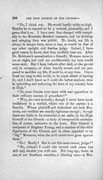
[p. 196]
"No, I think not. He would hardly strike so high. Besides he is reputed to be a coward, personally, and I guess that is so. I have seen him charged with complicity in the Mountain Meadow massacre, and his shirking and cringing then was pitiful. No doubt, my life is always in danger here, more or less, as would be that of any other upright and fearless judge. Indeed, I have good reason to know, that they cordially hate me. After Dr. Robinson's assassination a friendly Mormon came to me at night, and told me confidentially my turn would come next. But I keep indoors after dark, or else go out only in company, or when heavily armed, and am prepared to sacrifice my life, if need be, at any time. I have lived too long in this world, to be much afraid of leaving it; and I don't know as I could die better anyhow, than in upholding and enforcing the laws of my country here in Utah."
"Do your Courts ever meet with real opposition to their ordinary courses of procedure?"
"Why, no—not formally; though I never have much confidence in a verdict, where one of the parties is a Gentile. Where plaintiif and defendant are both Mormons, our verdicts are usually righteous enough; though these are liable to be overruled or set aside, by the High Council of the Church—a body of irresponsible ecclesiastics, of course, unknown to the laws. This Council is composed of Brigham Young, and a number of the chief dignitaries of the Church, and is often appealed to by "big" Mormons, when the civil courts have gone against them."
"No! Really? But is not this mere rumor, judge?"
"No, indeed! I could cite several such cases, but
will only trouble you with one. Not long ago, down in
one of our Southern counties, a laboring man—a
Mor-
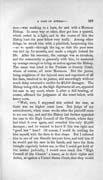
[p. 197]
mon
—was working in a barn, for and with a Mormon
Bishop. In some way or other, they got into a quarrel,
which ended in a fight, and in the course of this the
Bishop hurt the poor fellow very badly. Among other
things, he struck him with a pitchfork, harpooning him
—so to speak—through the leg, so that the poor man
was laid up for months, and made a cripple indeed for
life. After his recovery, the outrage was so atrocious,
and the community so generally with him, he mustered
up courage enough to bring an action against the Bishop.
The cause was tried in the Probate or County Court,
where of course, all were Mormons. But the jurors,
being neighbors of the injured man and cognizant of all
the facts, resolved to do justice, and accordingly without
much delay returned a verdict for $3,500 damages. The
Bishop being rich, as the high dignitaries all are, appealed
the case to my court, where I, after a full hearing, of
course, affirmed the judgment of the court below, with
heavy costs.
"Well, now, I supposed this settled the case, as
there was no higher court here. But judge of my
astonishment, when some weeks after the plaintiff came
to me one day, and said the Bishop had further appealed
the case to the High Council of the Church, where they
had tried it over again, and awarded him only $1,000
damages; and he wanted to know if this was right and
"good law" here? Of course, I could do nothing for
him myself, with the facts in that shape. But I referred
him to one of our Gentile lawyers here, and told him if
he would put the case in his hands, and have the facts
brought regularly before me, so that I could get hold of
the matter judicially, I would soon teach this "High
Council of the Church" a lesson, as to their rights and
duties, as against a United States Court, that they would
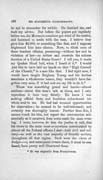
[p. 198]
be apt to remember for awhile. He thanked me, and
took my advice. But before the papers got regularly
before me, the Mormons somehow got wind of the matter,
and hastened to settle with the man. I believe they
gave him $2,000, or something like that, and I suppose
frightened him into silence. Now, to think once of
these insolent villains, presuming—without law and in
violation of law—to review and overrule the solemn
decision of a United States Court! I tell you, it made
my Quaker blood boil, when I heard of it.* I would
just like to have laid my hands on that "High Council
of the Church," in a case like that. I feel right sure, I
would have taught Brigham Young and his lawless
associates a wholesome lesson, they wouldn't have
forgotten very soon, if it had cost me my life to do it."
There was something grand and heroic—almost sublime—about this man's talk at times, and I only reproduce it here very faintly. He knew I was seeking official facts, and doubtless unburdened his whole soul to me. He had had unusual opportunities for observation; he seemed to be well-informed; and certainly was thoroughly honest. Further than this, I cannot vouch for him, but report the conversation substantially as it occurred, from notes made the same evening. I must, however, do him the justice to add, that his views in the main were everywhere corroborated by almost all the Federal officers I met—both civil and military—as well as the vast majority of Gentile settlers, throughout all that region. Such were the views of Judge—; and subsequent events there, it must be confessed, have pretty well illustrated them.